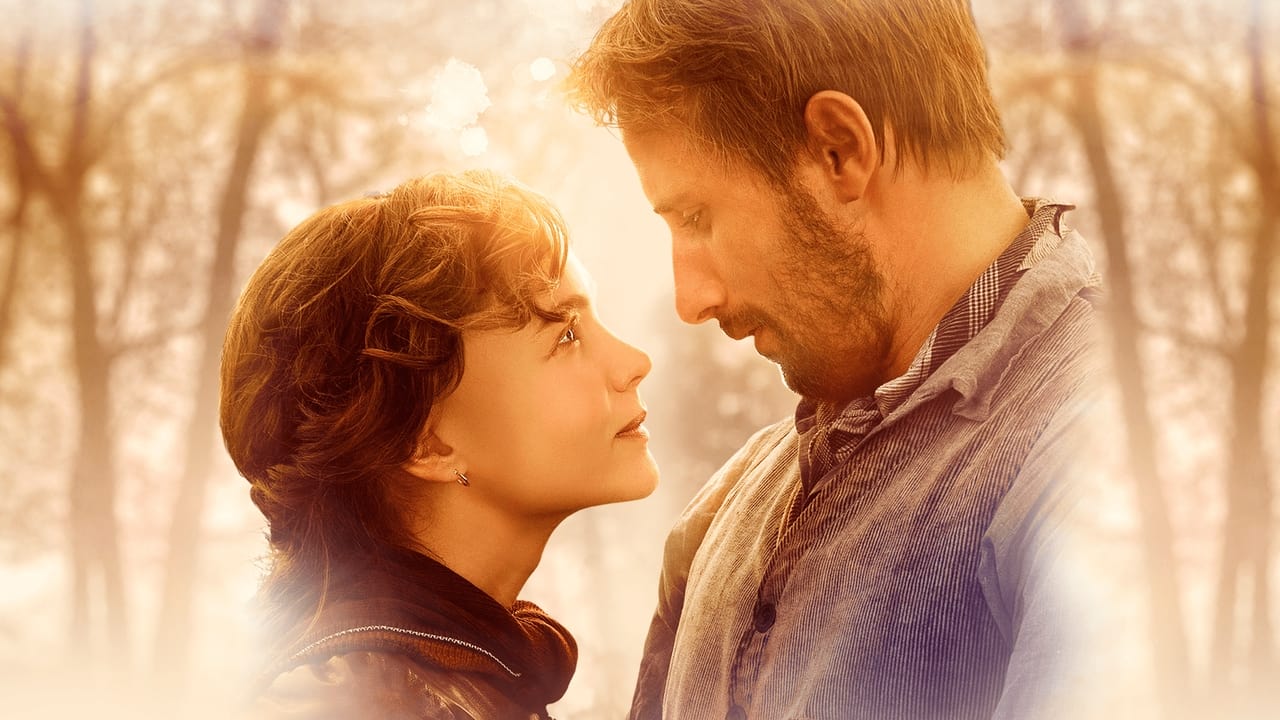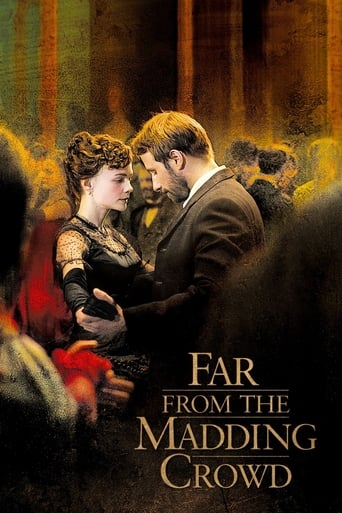

Left me detached compared to '67 Christie/Stamp/Finch/Bates film. I gave that 8 stars. A scene that seemed to capture the times so beautifully in that version was the meal Bethsheba shares with her workers. There, she sat inside while her staff sat outside like they were at a picnic! In this version it all takes place very quietly in the dark with little obvious joy. Anyhow, worth seeing but watch the Schlesinger film for a better adaptation.
... View MoreWhat an absolute waste of potential. The cinematography ... enchanting. The acting ... captivating. The writing ... incoherent and illogical. So much so that I couldn't help but wonder how this got through preliminary editing stages.Unlike most complaints of illogicality, this has nothing to do with suspense of disbelief. It has more to do with the overwhelming question riding in my mind throughout this film. "Why"?Bathseda goes from a strong and enforced independence to abject stupidity in moment. Really. After having rejected 2 men, within 10 minutes of the nearly 2 hours of this film, she falls for and marries a man she met in the middle of the night while walking back home, and who just so happens to be a selfish drunk. Why?Perhaps you could just explain away her stupidity with love, but the film takes no time with it. Any emotion is thrust upon the viewer without even the simplest of justification. At best, weak explanations are added in afterwards to quell these questions (she married him was jealous and required a distraction; if you say so). Then within minutes the next man falls in love with her (all the men in this movie just fall in love and propose, there's no time for any justification behind this love that would actually make this movie interesting) and then shoots the husband who by the way was thought to have drowned. Who needs any sort of background behind any emotion when they can just throw love at the screen. Who needs any motivation? We have time constraints people.Moreover, the primary character, Bathseda, is so utterly unlikable that at best you can feel abject apathy. She fires a man who she is indebted to after he dared point out her capriciousness (after, notably, she asked for his opinion). This is until she needs him the next day when her livestock fails. Perhaps some found this stubbornness and pride endearing. I didn't. By the end of the film, my only investment was hoping she did not get her happy ending after so callously and irresponsibly using the people around her.The film only gets 3/10 stars because of the cinematography, which I can't stress enough, is so utterly amazing. Additionally, the acting was rather well done, with Carey Mulligan being a notable standout. It's a shame such cinematographic and acting skill was wasted on an atrocious plot.
... View MoreThis film is based on the Thomas Hardy novel by the same name. It follows Bathsheba Everdene through the course of three male suitors in 1870. We start the movie when she's still quite young and impoverished, though incredibly headstrong. Her neighbor Gabriel Oak immediately proposes marriage, but she turns him down.A few years later, Bathsheba inherits her uncle's estate. Gabriel Oak stumbles upon it after losing his own home. Bathsheba hires him as a laborer when both agree there's no more tension between them. However tension ensues when several suitors become interested in Bathsheba's unusual independence. One is the hilariously clueless William Boldwood, who's several years older. The other is bad boy Francis Troy. Despite being headstrong, she falls for Francis' charisma and troubles emerge. A love triangle is formed between herself and the 3 men in her life.Carrie Mulligan does a great job as Bathsheba Everdene. She plays a modern woman stuck in the restrictive 19th century. Throughout the film, she is constantly fighting to prove her own worth. Her independence often attracting the wrong men. My only issue is with their interpretation of Francis Troy. Bathsheba falls for him immediately, despite his over the top, smarmy attitude. I know this comes from the source material, but it happens so suddenly on film. Bathsheba goes from loving Francis, to pining for Gabriel, to toying with William's affection without pause. Despite wonderful performances from the entire cast, more context would've been appreciated. About 20 minutes more screen time, and the film would've been perfect.
... View MoreThomas Hardy witness life in England during the Victorian Era, a time of mental and emotional oppression and fundamental values played out by a dominate religious male sect. Hardy showcases his characters against pastoral settings and mists, rural roads, candle light, tight interiors, and a love story usually develops among the literary painting. Hardy also plays on the purity of his characters, void of ego. In Far From The Madding Crowd there is a pure character who is rejected by the vanity of feminism. Yet, pure love is present and remains on the sidelines throughout the film. Gabriel Oak is the focus in study. "Do What Is Right" he states to a fearful and distraught Bathsheba. Matthias Schoenaerts plays Gabriel Oak, a hardworking and gifted shepherd. He has a spirit of a saint and a warrior, a man to strive to be. He reminds me of Jude, The Obscure, another character who was seen as pure and placed in the vanity of the institution and feminism. In Tess of The Durbervilles, Tess was the pure individual raped by the institutions controlled by the male world. One can see where feminism would rise. Remember that this was written in a time where a woman with three suitors would seem unfitting. Hardy loves to play on the circumstances that keeps pure love from blossoming, making the protagonist go through much hardship and strife before they have a second chance to act again on what once was and always eternally felt. Hardy also lives in a handsome world surrounded by handsome people. A lovely film and story.
... View More